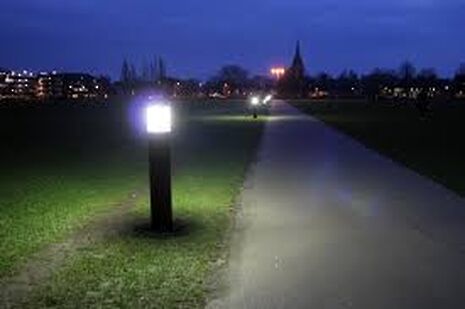Students demand a safer Cambridge
After a series of attacks, a petition calls for better lighting in parks

Following a series of sexual assaults in Cambridge city centre last week, students have come together to protest against the low level of security that the city offers at night.
Last Friday night Mill Road, Jesus Green and an area near the Grand Arcade became the locations of three separate cases of sexual assault.
Two Libyan soldiers, Mohammed Abdalsalam, 27, and Naji El Maarfi, 20, who had been training at barracks in Cambridgeshire have since admitted to the criminal acts. A third soldier declined to enter a plea.
Police are still investigating a “serious” assault on a man which occurred on Christ’s Pieces on Sunday night.
The string of assaults followed an announcement by the Cambridgeshire police that there had been a 25 per cent increase in reported rapes between March 2013 and March 2014.
In the wake of the most recent criminal activities, a range of students have come forward suggesting ways to make Cambridge safer for its residents, particularly at night.
An online petition has been brought to the Cambridgeshire County Council arguing that the parks of Cambridge need to be better equipped with street lighting in order to avoid dark, unsafe paths in the centre of town.
The County Council, however, have recently revealed plans to reduce lighting around Cambridge. The Strategic Projects Manager, Alan Hitch, commented that plans “to reduce the amount of energy use[d] on street lights and to help balance [the] budget” will “include turning off some street lights for part of the nights in residential areas.” Although Hitch did maintain that there would be lights “in areas with a higher risk of crime”.
Currently several of the city’s green spaces, such as Christ’s Pieces and Jesus Green, are not well-lit, raising questions about their safety after dusk.
The online petition, registered on change.org as “Bring light to Cambridge and make our streets safer”, has received over 1,500 signatures.
CUSU Women’s Campaign is currently developing an online map of Cambridge which identifies various ‘safe places’ around the city.
Along with markers indicating the location of the different porters’ lodges, the map will show both of Cambridge’s police stations, as well as bars and locales which the creators of the map deem to be safe night-time locations.
Amelia Horgan, head of the CUSU Women’s Campaign gave the following statement with regards to student-led security initiatives: “The Night Map doesn’t aim to prevent crime but to create a resource for anyone who feels unsafe... to find places that could help. It will be useful as a way of sharing information, for example, informing students which porters’ lodges are open 24 hours (sic).”
“Sexual violence is caused by and enabled through structures of power, privilege and misogyny. The CUSU Women’s Campaign is working on ending sexual violence through our work around sexual consent, and putting pressure on the University to develop and use policies against harassment, assault and rape.”
 Comment / Plastic pubs: the problem with Cambridge alehouses 5 January 2026
Comment / Plastic pubs: the problem with Cambridge alehouses 5 January 2026 News / News in Brief: Postgrad accom, prestigious prizes, and public support for policies11 January 2026
News / News in Brief: Postgrad accom, prestigious prizes, and public support for policies11 January 2026 Theatre / Camdram publicity needs aquickcamfab11 January 2026
Theatre / Camdram publicity needs aquickcamfab11 January 2026 News / Cambridge academic condemns US operation against Maduro as ‘clearly internationally unlawful’10 January 2026
News / Cambridge academic condemns US operation against Maduro as ‘clearly internationally unlawful’10 January 2026 News / SU stops offering student discounts8 January 2026
News / SU stops offering student discounts8 January 2026








